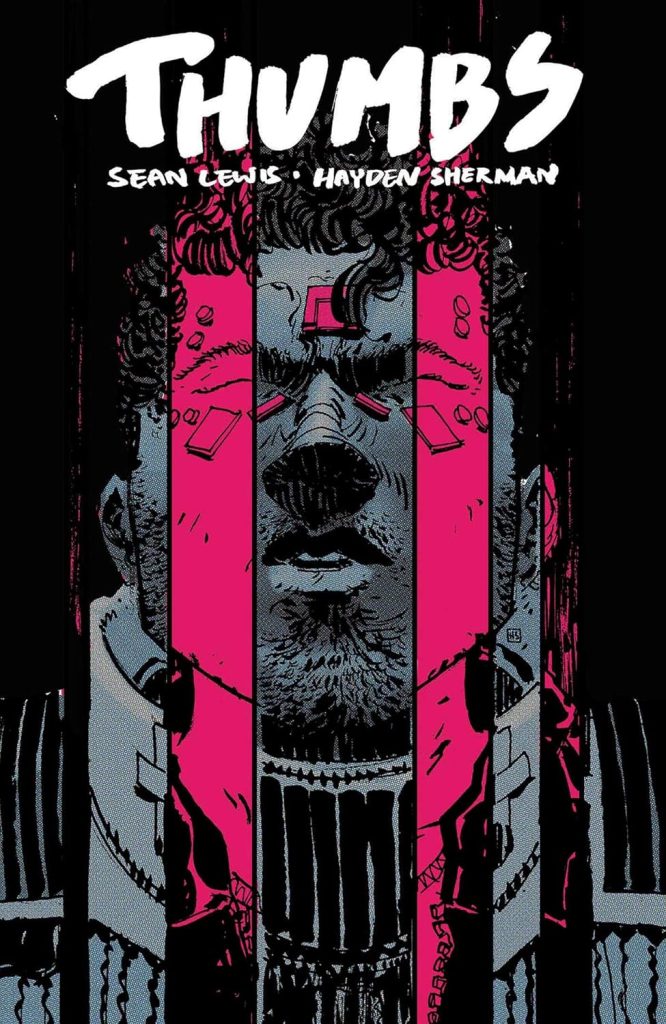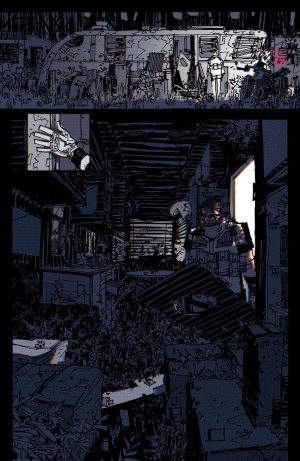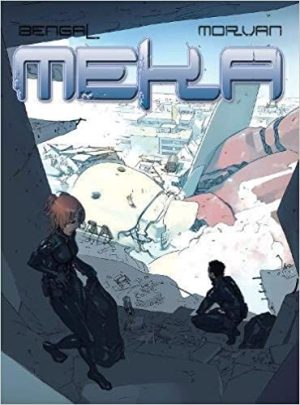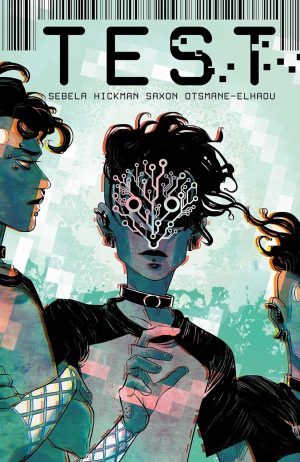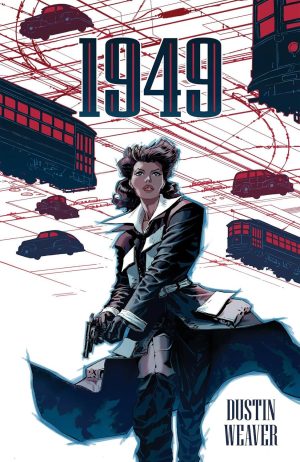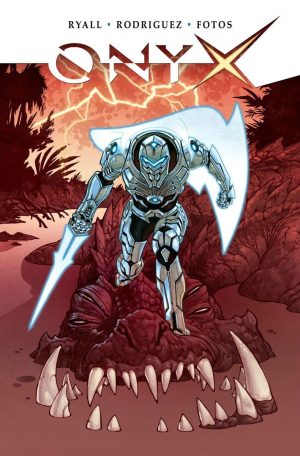Review by Frank Plowright
Thumbs begins with Charley ‘Thumbs’ Fellowes on the verge of death being rushed to hospital. He’s one of several hundred avid gamers awarded a secret scholarship by a global tech company, almost all from a disadvantaged background. After an extended present day sequence showing the seriousness of Thumbs’ condition, Sean Lewis flashes back to two years previously, showing Thumbs and his sister Tabitha seemingly abandoned in a trailer park by their parents and in the care of holographic artificial intelligence Mom. Both are beguiled by the messages of tech entrepreneur Adrien Camus, and it’s his company supplying the scholarships.
Hayden Sherman has two worlds to distinguish, so reality becomes greytoned art while virtual reality is bright pink, but with some grey touches. It’s an effective contrast accommodating Sherman’s jagged style, which is an amazing look really selling the concept. He frequently uses spreads, offering a widescreen version of the grim new world, and there’s something of Frank Miller’s visual approach, but Sherman is detailed rather than blocky. He’s good to start with and the art becomes ever more impressive as Thumbs continues.
While Lewis takes a little too long to establish an ongoing situation, he has a big surprise to drop ending the first chapter. Thumbs comes to concern a dystopia of the future, but quite how the situation developed from the flashbacks of the opening chapter isn’t revealed for some time. It means an abiding sense of confusion making it necessary to assume Thumbs as a reliable narrator as he also works his way through strange circumstances. He has a guide, though, in Mom, and we learn how Tabitha’s been doing as well.
We know from the second chapter that a meeting is inevitable, and it comes about sooner than anticipated, in turn setting up another inevitable confrontation, overlaid with scattershot criticism of the way technology can be applied. Yet for all the impressive art, and the conceptual strength, while Lewis surprises, he never loses the indulgence of spending too long on sequences that eventually count for little. It’s surprising as he succeeds with the emotional moments and the bigger picture. Thumbs is good, but with better editing it might have been great.
